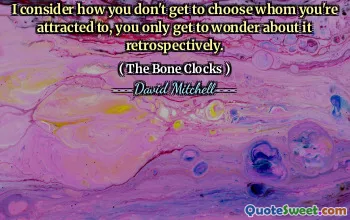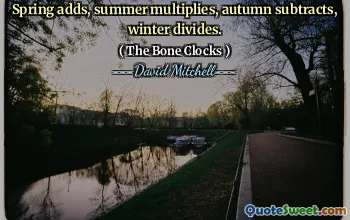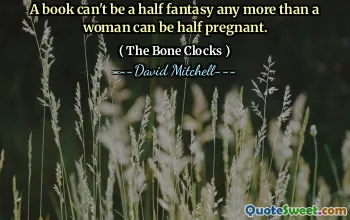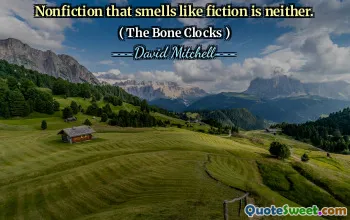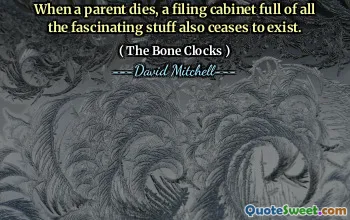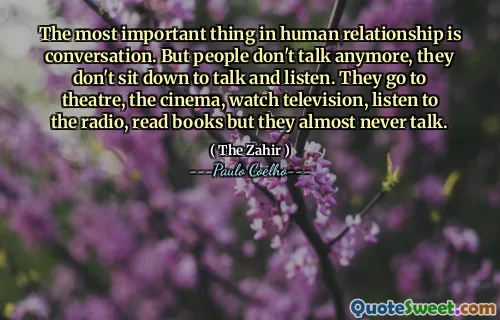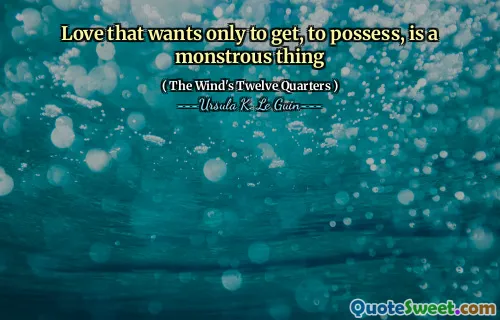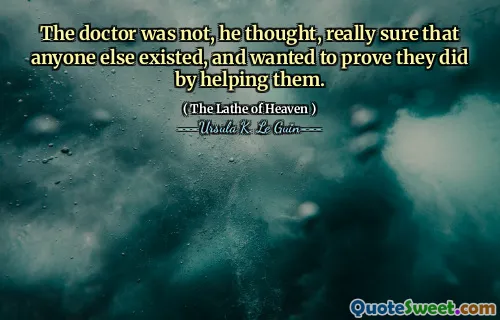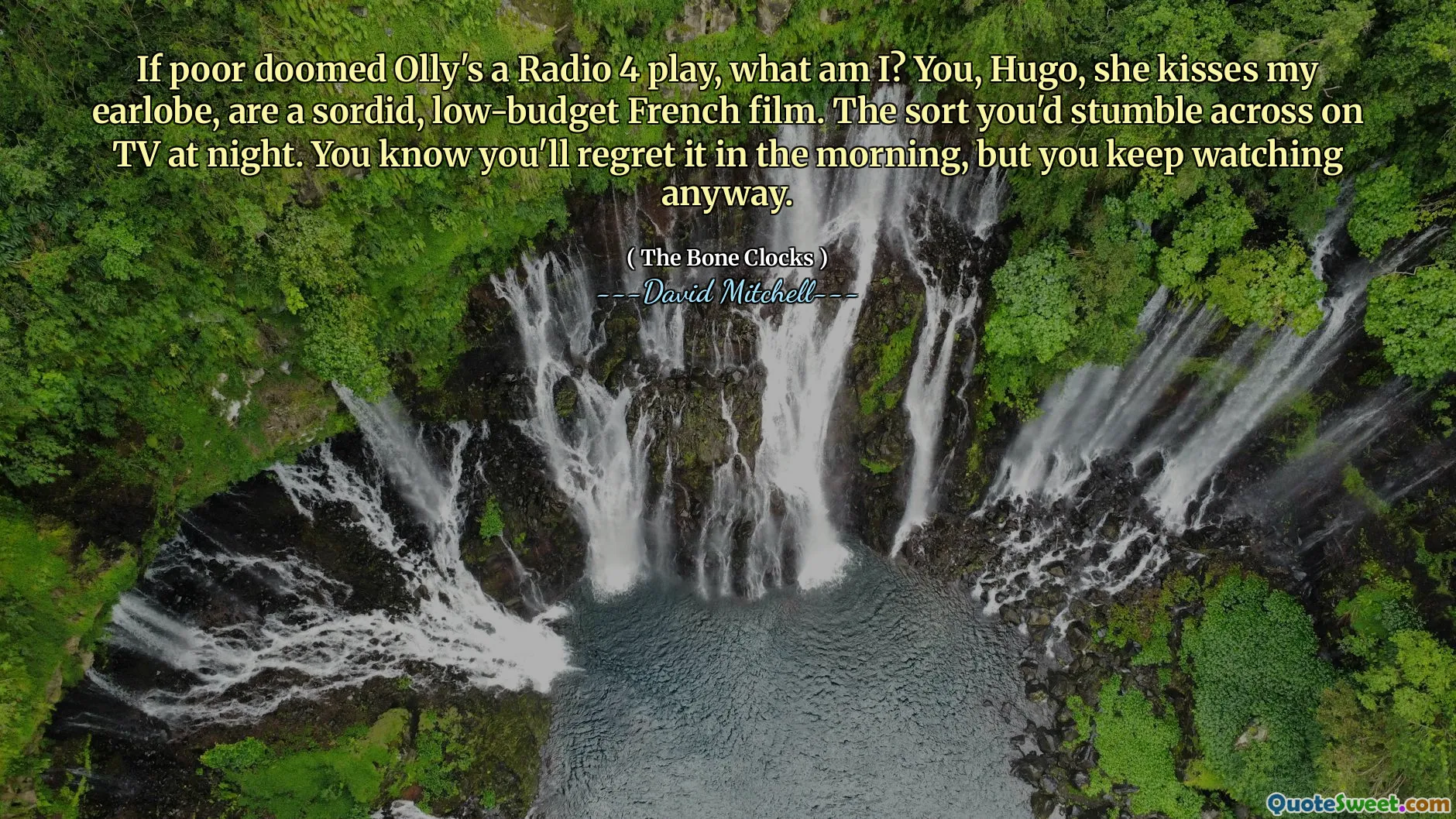
If poor doomed Olly's a Radio 4 play, what am I? You, Hugo, she kisses my earlobe, are a sordid, low-budget French film. The sort you'd stumble across on TV at night. You know you'll regret it in the morning, but you keep watching anyway.
This quote from David Mitchell's The Bone Clocks invites an intriguing metaphorical comparison that explores self-perception and the way characters view themselves and others through a lens of artistic and cultural references. The speaker contrasts 'poor doomed Olly,' likened to a Radio 4 play—something perhaps earnest, well-intentioned, and thoughtful but perhaps also narrow in scope or limited in appeal—with 'you, Hugo,' who is described evocatively as a sordid, low-budget French film. The imagery here is striking: a late-night TV movie that viewers are drawn to despite its apparent flaws, something possibly indulgent or troubling, yet impossible to resist.
This metaphor serves several layers of meaning. It highlights the subjective gaze we cast on others, assigning them roles or genres that reveal more about our own perceptions and biases than about their true nature. Radio 4 plays are often associated with intellectualism, a cerebral experience, whereas a low-budget French film conjures up notions of rawness, grit, and perhaps transgressive or uncomfortable truths, which may be compelling precisely because of their imperfections and unpredictability. There's a sense of resigned fascination—the idea that some stories or people captivate us even when they unsettle us, a reminder of the allure of complexity and imperfection.
Furthermore, the wistful acknowledgment that "you know you'll regret it in the morning, but you keep watching anyway" touches on a deeply human truth about our attractions and compulsions. We're often drawn to experiences or individuals that aren't necessarily good for us in a conventional sense, but which resonate on a deeper emotional level. This could be read as a commentary on relationships, art, or even life choices—moments where reason conflicts with desire.
The quote's intimate tone, mentioning a kiss on the earlobe, adds another layer of sensuality and immediacy, embedding the abstract literary allusion within a tangible human experience. It reminds readers that beneath cultural metaphors lie personal, embodied encounters. In this way, the passage captures the complexity of human connection—one that is messy, layered, and reflective of the contradictory impulses that define our inner worlds.
Ultimately, David Mitchell uses colorful artistic analogies not only to entertain but to deepen the reader's understanding of identity, attraction, and the unpredictable nature of human relationships. It encourages us to accept both the refinements and the grittiness within ourselves and others, acknowledging that enchantment isn't confined to the polished or the pristine.
